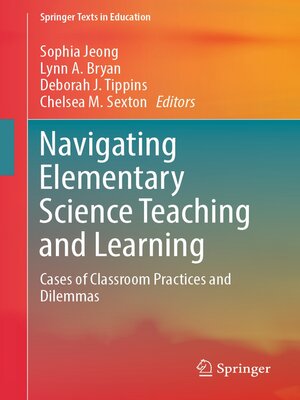Navigating Elementary Science Teaching and Learning
ebook ∣ Cases of Classroom Practices and Dilemmas · Springer Texts in Education
By Sophia Jeong

Sign up to save your library
With an OverDrive account, you can save your favorite libraries for at-a-glance information about availability. Find out more about OverDrive accounts.
Find this title in Libby, the library reading app by OverDrive.



Search for a digital library with this title
Title found at these libraries:
| Library Name | Distance |
|---|---|
| Loading... |
This book is a resource for both prospective and practicing elementary teachers as they learn to teach science in ways which foster the development of a community of science learners with multiple perspectives and diverse approaches to problem solving. It includes cases that feature dilemmas embedded in rich narrative stories which characterize the lives of teachers of science, and by extension their students, and serve as tools for discussion, critique, and reflective practice.
The introduction to the book explores changing contexts for elementary science teaching and learning, and describes how case-based pedagogy can be used as a tool for both instruction and research. Each subsequent section of the book includes cases that are organized around topics such as contemporary approaches to teaching elementary science, new roles for technology, and the creation of inclusive learning environments for all students in elementary science. Each case is followed by reflective commentaries and concludes with questions for reflection and discussion. Teachers will benefit from these cases as they explore the complexities and ambiguities of elementary science teaching and learning in today's classrooms.
The introduction to the book explores changing contexts for elementary science teaching and learning, and describes how case-based pedagogy can be used as a tool for both instruction and research. Each subsequent section of the book includes cases that are organized around topics such as contemporary approaches to teaching elementary science, new roles for technology, and the creation of inclusive learning environments for all students in elementary science. Each case is followed by reflective commentaries and concludes with questions for reflection and discussion. Teachers will benefit from these cases as they explore the complexities and ambiguities of elementary science teaching and learning in today's classrooms.







